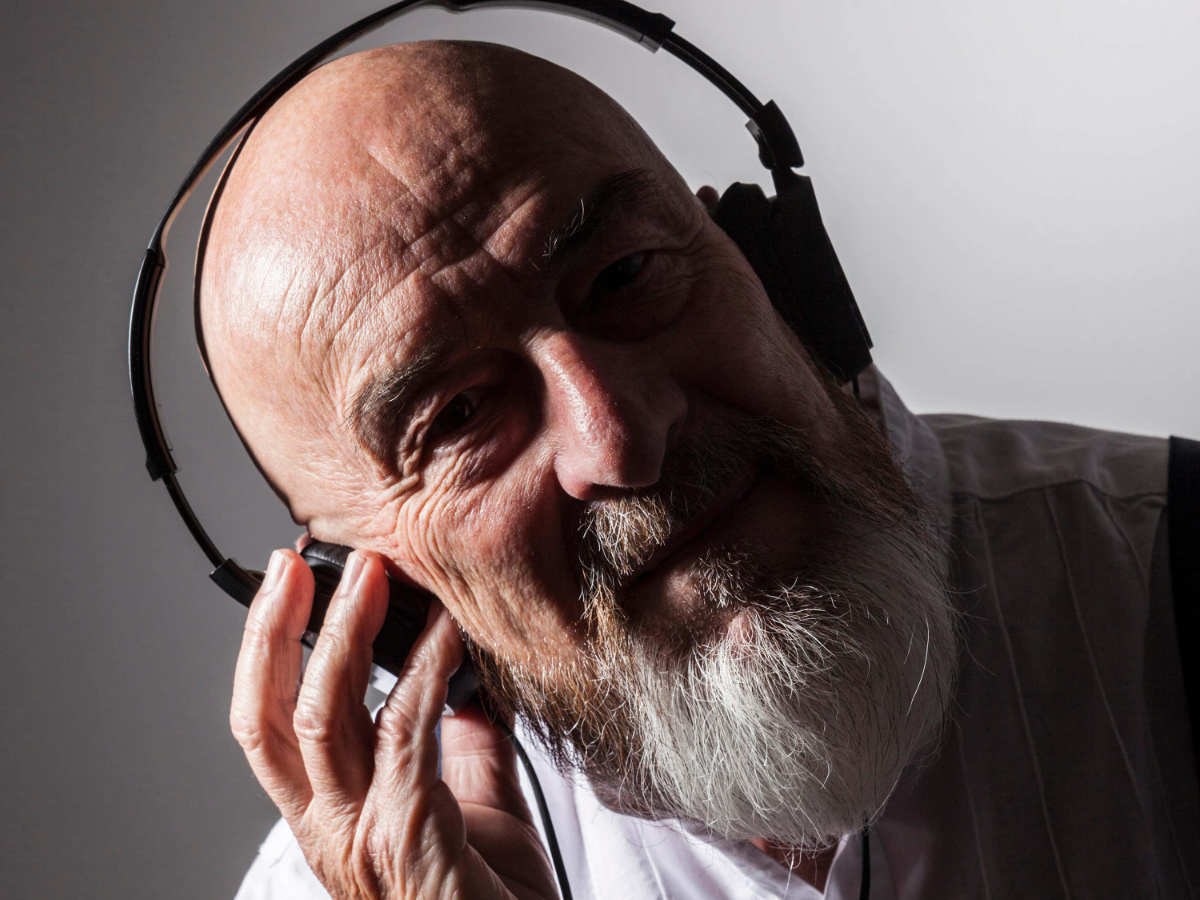As people live longer, it’s estimated that over one million people in the UK and Ireland will have a diagnosis of dementia by 2025. And there’s currently no cure for this devastating condition.
But there are ways to ease its symptoms, and a new report has concluded that music can play a “powerful” role in improving the lives of those living with dementia.
The Power of Music report, which follows a study by UK Music (ukmusic.org), the collective voice of the UK’s music industry, and the health and music campaign Music for Dementia (musicfordementia.org.uk), has stressed the extraordinary health benefits of music, and called for more to be done to help people fully appreciate its power.
View this post on Instagram
“Sadly, we don’t have a cure for dementia, but we do have music to help address the symptoms, in order to help improve quality of life across the severity of dementia,” says Grace Meadows, campaign director for Music for Dementia.
She explains that because we process music across the whole brain and not just in one region, as dementia develops, unaffected parts of the brain can still process music, and research has shown that music therapy can reduce agitation and the need for medication in 67% of people living with dementia.
“Music is a conversation and it’s a powerful means of communication,” she stresses. “By working with music to help reduce the often-distressing symptoms of dementia – such as anxiety, apathy, depression and confusion – it enables people to contribute to and be part of a creative process that takes them out of their experience with dementia, connecting them to themselves, those around them and the world around them.”
The Alzheimer’s Society (AS; alzheimers.org.uk) says music is one of the ways to treat dementia symptoms without using drugs, and Tim Beanland, head of knowledge at the AS, adds: “One of the best ways to help ease symptoms of dementia is by keeping active: physically, mentally and socially. Enjoyable activities such as music, song and dance can all help to improve wellbeing in people with dementia.
“Music and singing can bring back memories and alleviate low mood and anxiety, as well as promote communication. Perhaps most of all, it brings people together.”
This simple fairy lights analogy from @DementiaFriends explains how dementia affects the brain in different ways.
To understand more about dementia and how you can support people affected, become a Dementia Friend at https://t.co/b50Zs6aBup pic.twitter.com/IIajXnNw0j
— Alzheimer’s Society (@alzheimerssoc) April 18, 2022
The AS says the main non-drug treatments for dementia through ‘person-centred care’ are…
1. Cognitive stimulation therapy (CST)
This is a range of activities which help keep the brain active, including puzzles, talking about the news, or doing something creative, like singing.
2. Cognitive rehabilitation
Cognitive rehabilitation involves a therapist helping dementia patients to do activities they find difficult, such as learning or re-learning how to use household appliances or mobile phones. or managing daily tasks like cooking better. “This gets parts of the brain that are working to help the parts that are not,” explains the AS.
3. Life stories and reminiscence
This is a way to improve the mood, wellbeing and memory of people with dementia. For example, a scrapbook, photo album or app may be used to record or talk about important things that have happened in someone’s life, to make the memories easier to remember and access. Reminiscence work uses photos, objects or music in a similar way, to get people talking about their past.
4. Music and creative arts
View this post on Instagram
The AS says making music, dancing and painting can keep the brain active, and it recommends joining one of its Singing for the Brain groups.
Meadows stresses: “The benefits of music extend beyond the person living with dementia. We know those moments of connection with someone living with dementia can create a shared experience that enables people to be seen for who they are, beyond their diagnosis. It really can help to improve everyone’s mood.”
5. Complementary therapies
The AS says aromatherapy, massage or bright light therapy – where a person sits in front of a very bright light box every day to help regulate the circadian rhythm, which can be disrupted by dementia – can be used, as well as other standard treatments. It says people who are interested in trying complementary therapies for dementia should talk to their GP first, and should always make sure their therapist is properly trained.
Best-selling headphones
Need a pair of headphones? Check out our list of best-selling headphones on Amazon.
- The Digital Sound Enhancement Engine (DSEE) restores your music with high frequency and gradual fade out sound for a more authentic performance. You can even tailor to your own taste with EQ settings...
- With up to 50 hours of battery life, you can listen to your favourite music without worrying about running out of charge. And, if your headphone battery is running low, a 3-minute quick-charge can...
- The WH-CH520 has Multipoint Connection, easy button operation, and can even be controlled with your voice. And since connection is easy with Swift Pair and Fast pair, these Sony headphones are ideal...
- 30 mm dome drivers for balanced sound
- High energy neodymium magnets deliver powerful sound
- 12-22 kHz frequency range
- HIGH FIDELITY STEREO HEADPHONES: KVIDIO upgraded bluetooth headphones with dual 40mm drivers and noise isolation technology, offers an almost concert hall-like feel to your favorite music as close as...
- UNMATCHED COMFORTABLE HEADPHONES: Over ear earmuff made by softest memory-protein foam gives you all day comfort. Adjustable headband and flexible earmuffs can easily fit any head shape without...
- WIDE COMPATIBILITY: Simply press multi-function button 2s and the over ear headphones with mic will be in ready to pair. KVIDIO wireless headsets are compatible with all devices that support Bluetooth...
- Hybrid Active Noise Cancelling: 2 internal and 2 external mics work in tandem to detect external noise and effectively reduce up to 90% of it, such as planes and car engines.
- Immerse Yourself in Detailed Audio: The noise cancelling foldable headphones have oversized 40mm dynamic drivers that produce detailed sound and thumping beats with BassUp technology. Compatible with...
- 40-Hour Long Battery Life and Fast Charging: With 40 hours of battery life with ANC on and 60 hours in normal mode, you can commute in peace without thinking about recharging. Fast charge for 5 mins...
- Enjoy natural vocals, crystal clear sound and balanced tuning thanks to the Integrated Processor V1 and Digital Sound Enhancement Engine (DSEE), producing a high quality sound exactly as the artists...
- Digital Noise Cancelling headphones. Dual Noise Sensor technology and the Integrated Processor V1 let you adapt sound to your liking, and with the Sony | Headphones Connect app, you can adjust the...
- Stays comfortable, however long you listen. A lightweight, ergonomic construction makes the most of the 35 hour* battery life, so these wireless headphones stay comfortable for long periods of...
Last update on 2024-04-04 / Affiliate links / Images from Amazon Product Advertising API
You may be interested in…
This article may include affiliate links to products and services where we may receive a small fee to support the running of this site if you make a purchase or is a sponsored article from one of our select editorial partners providing valuable advice and information to our readers.




































































